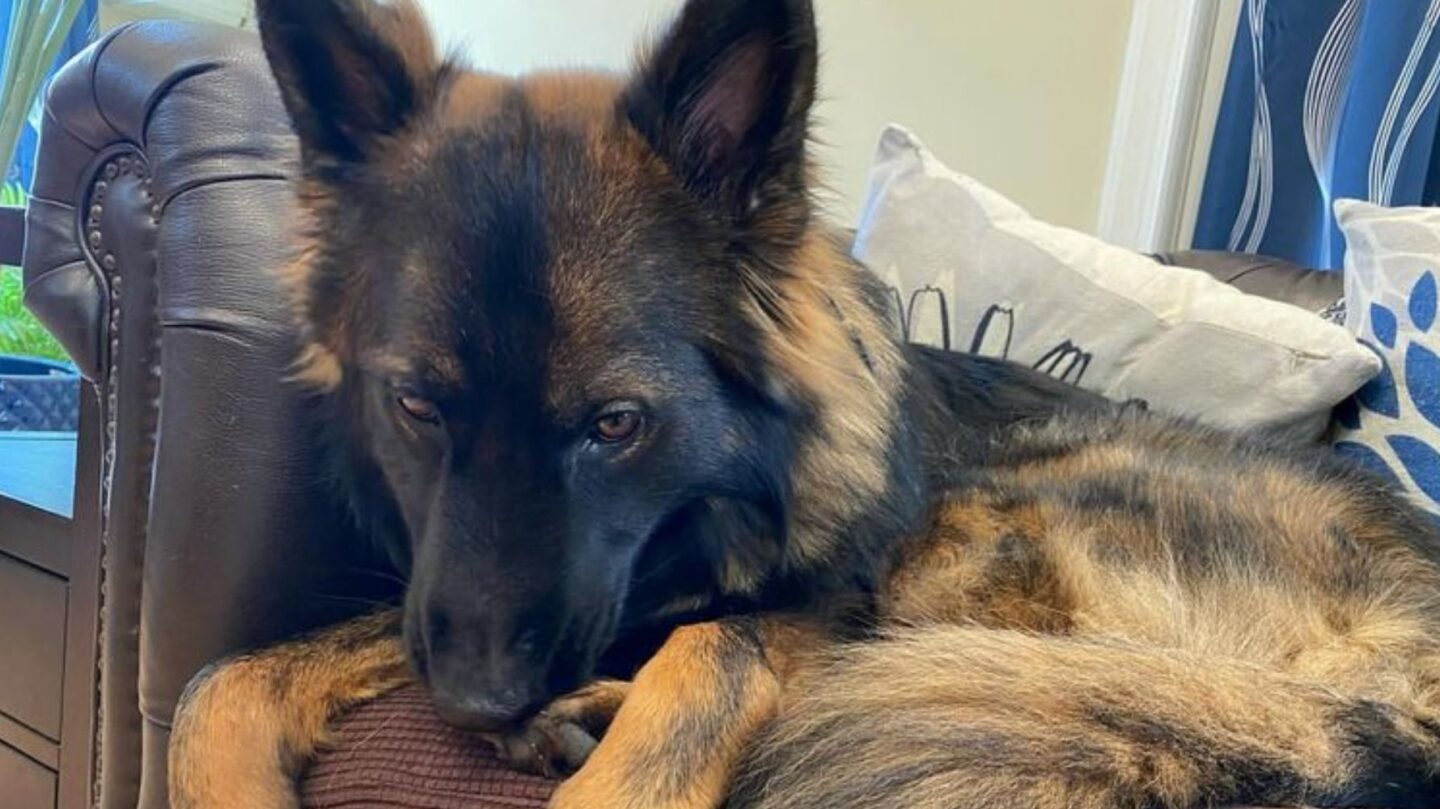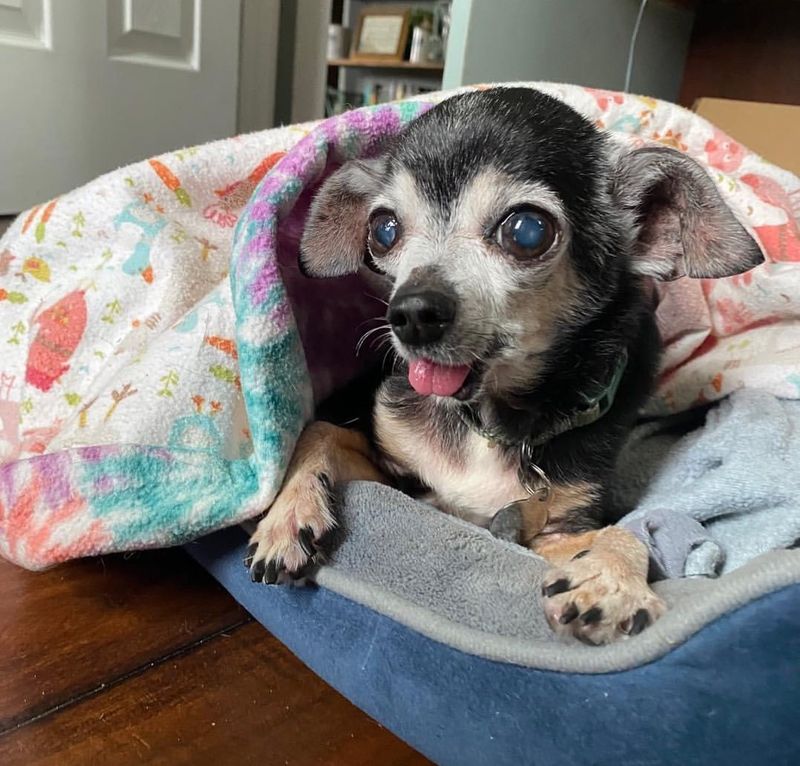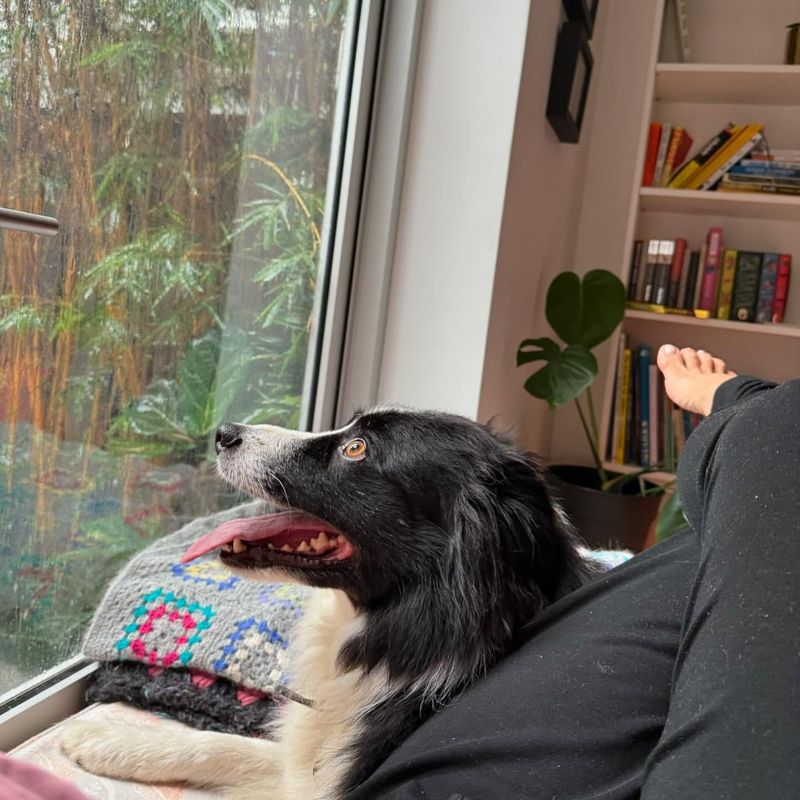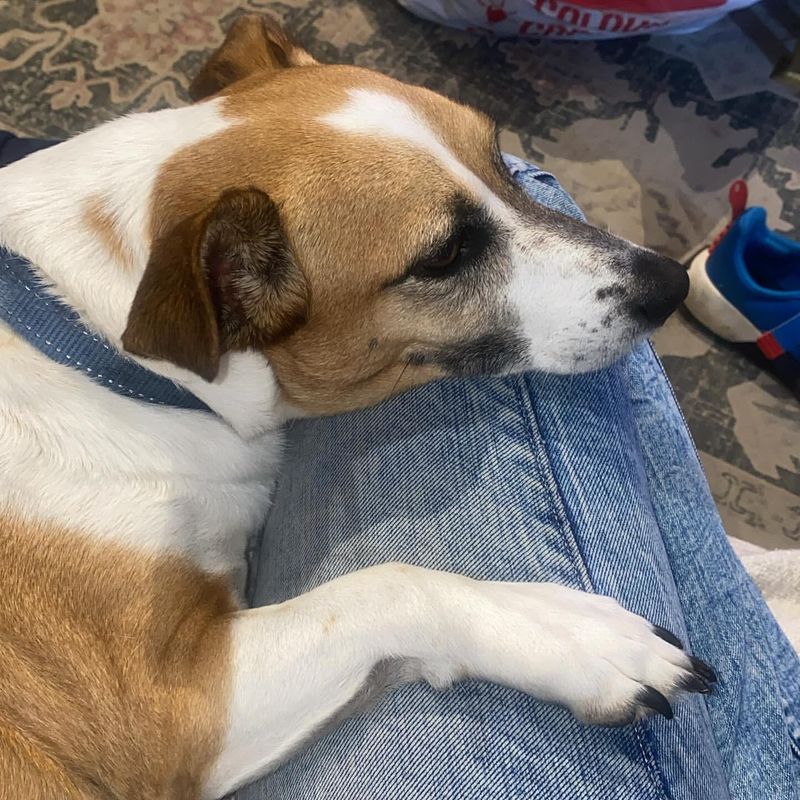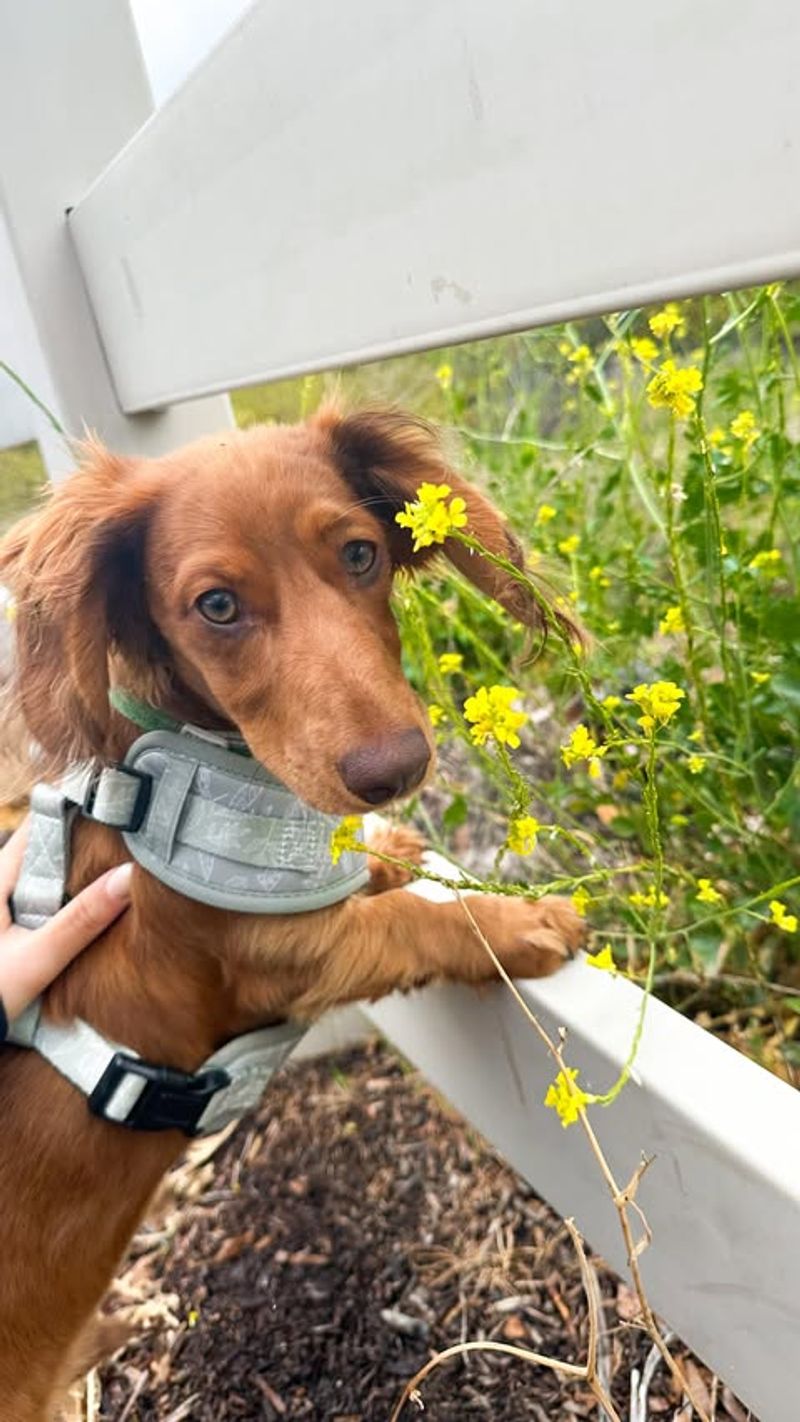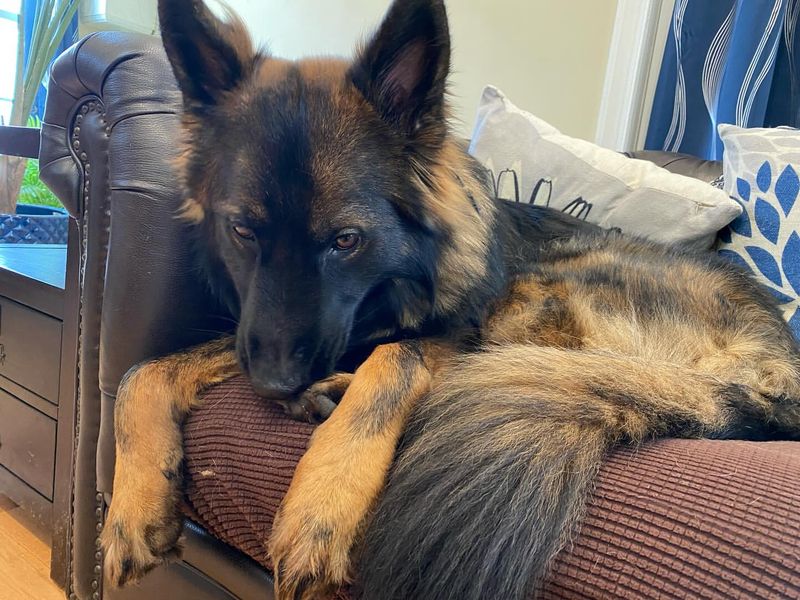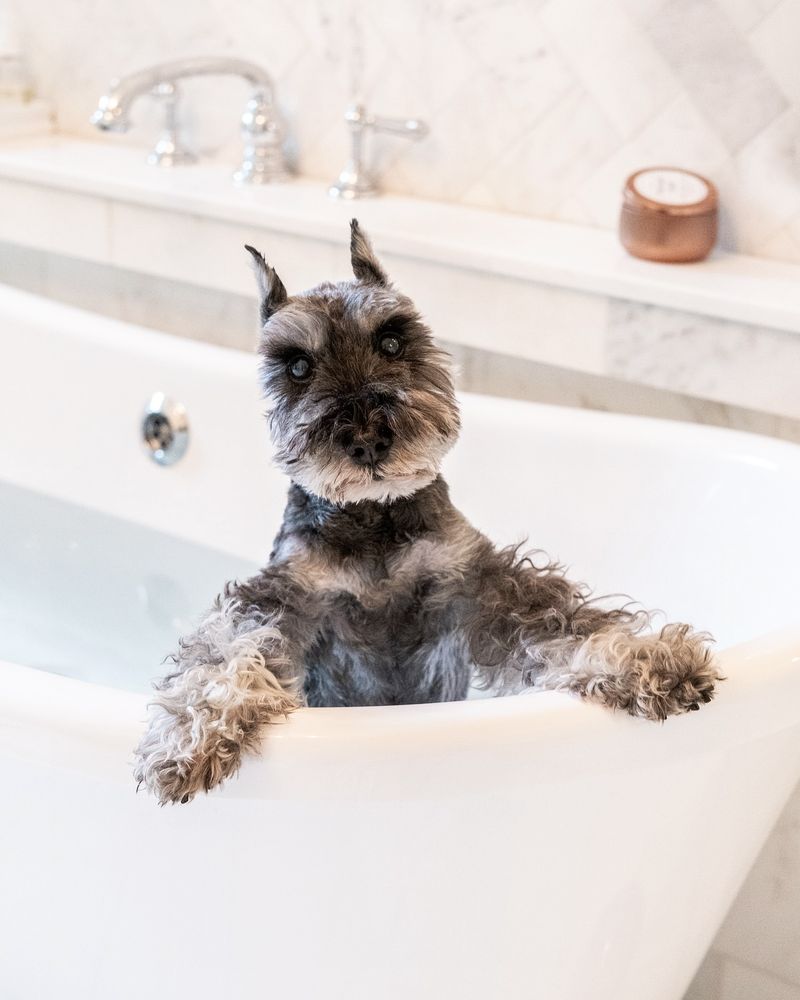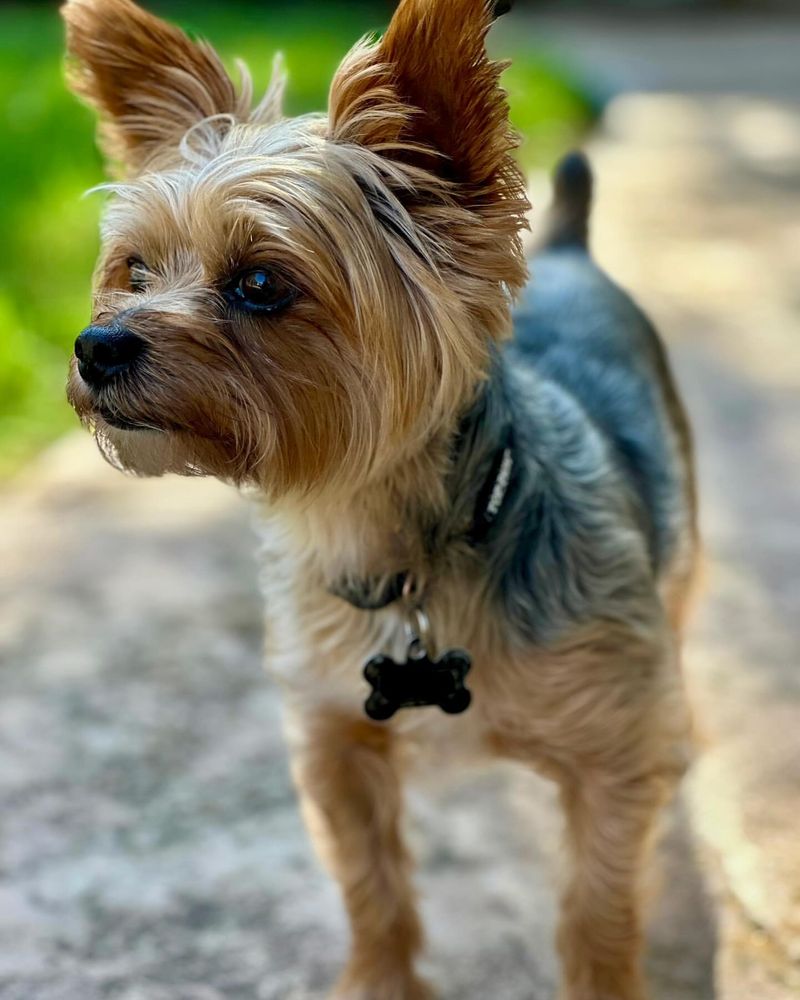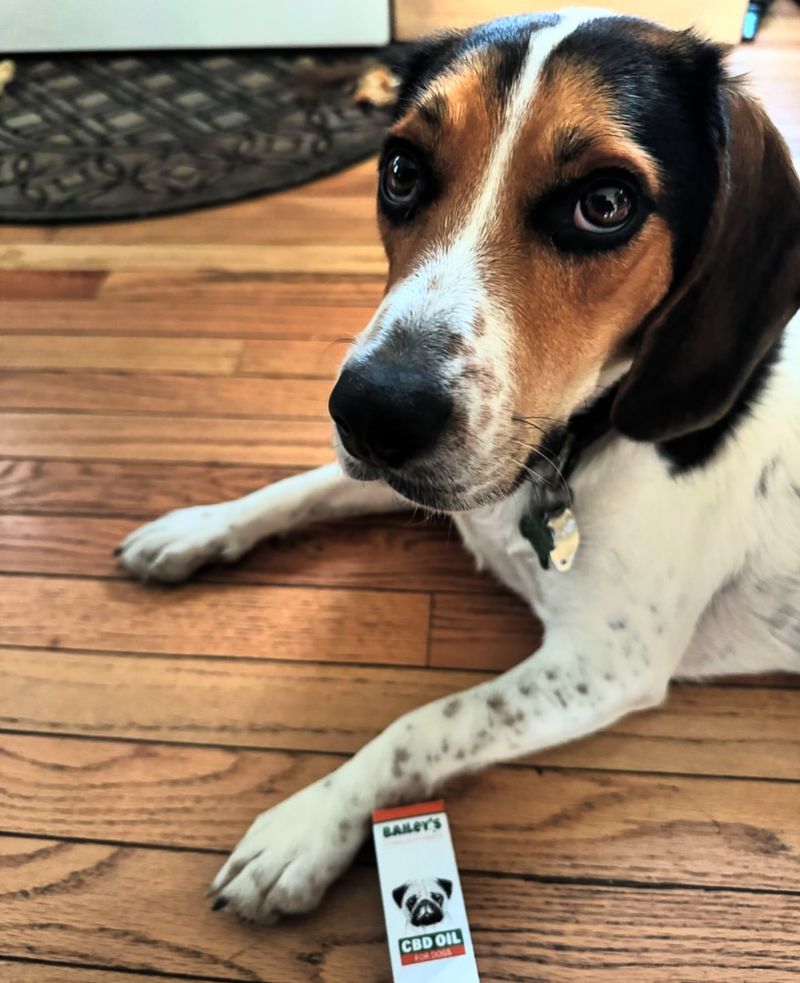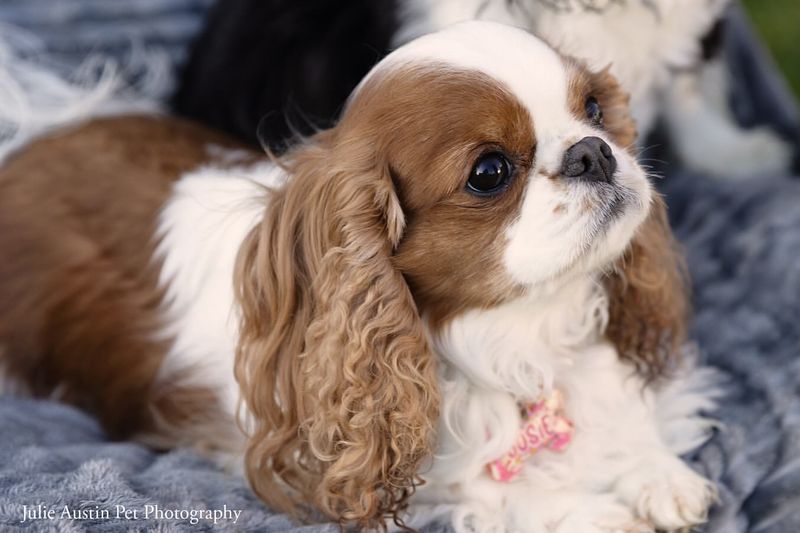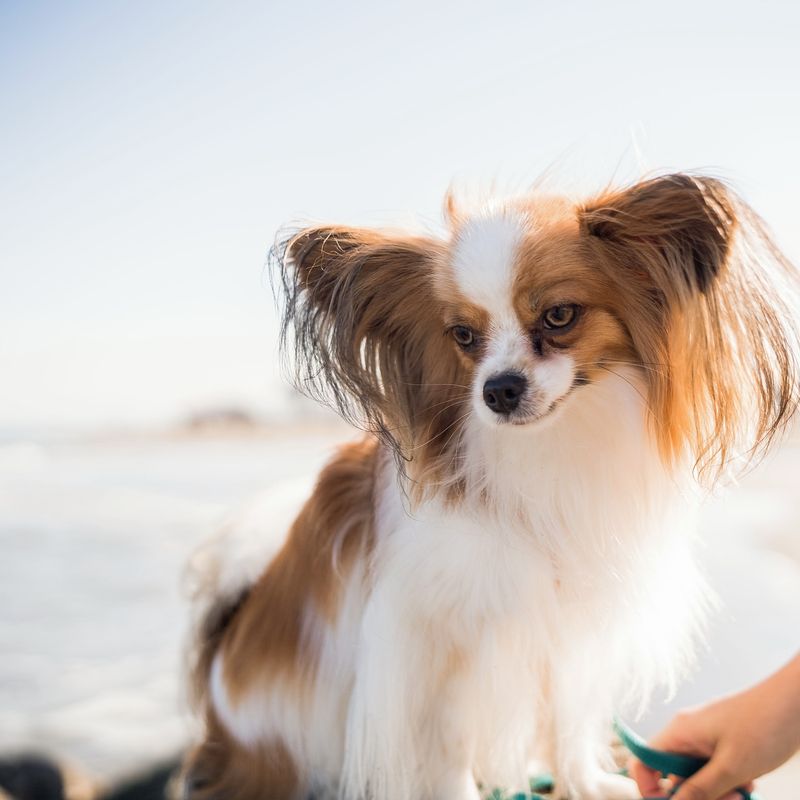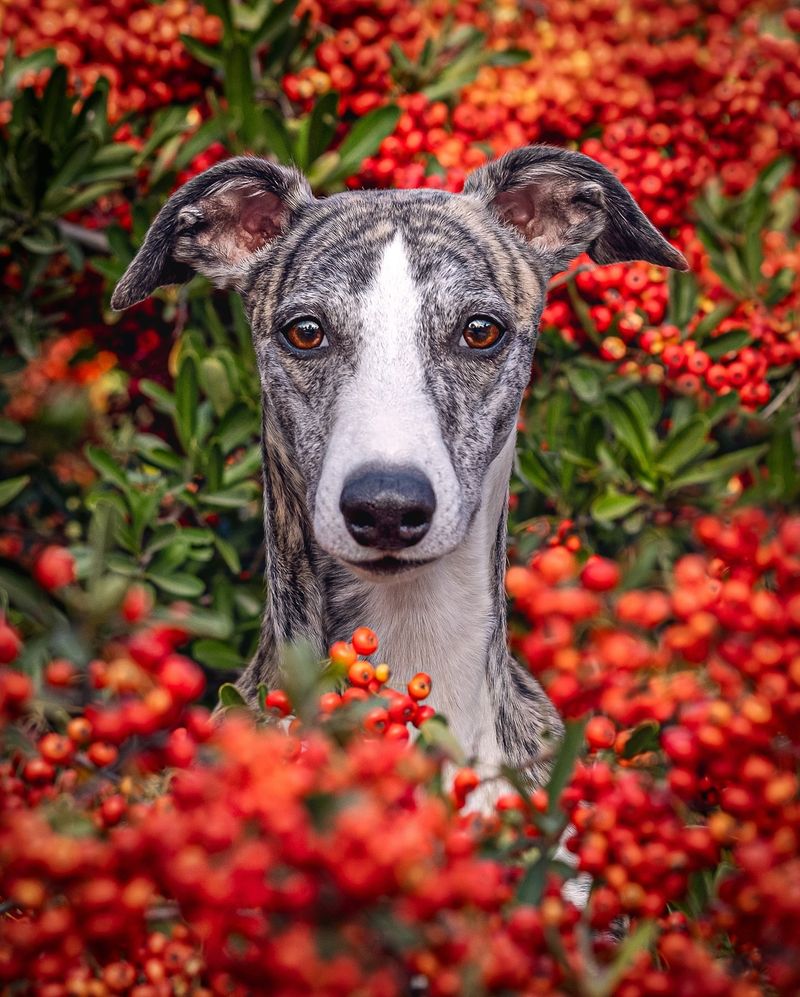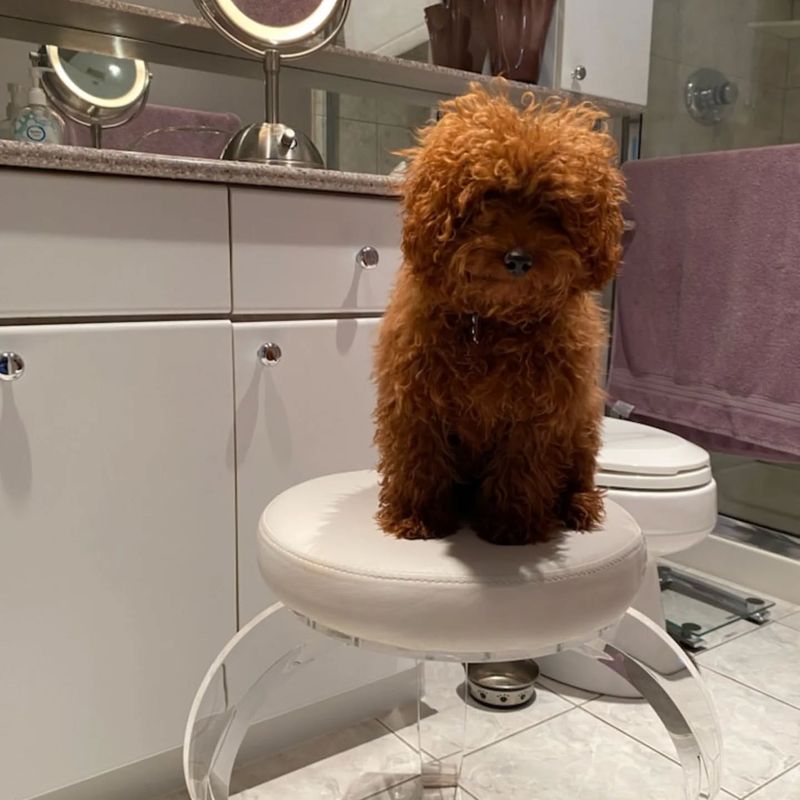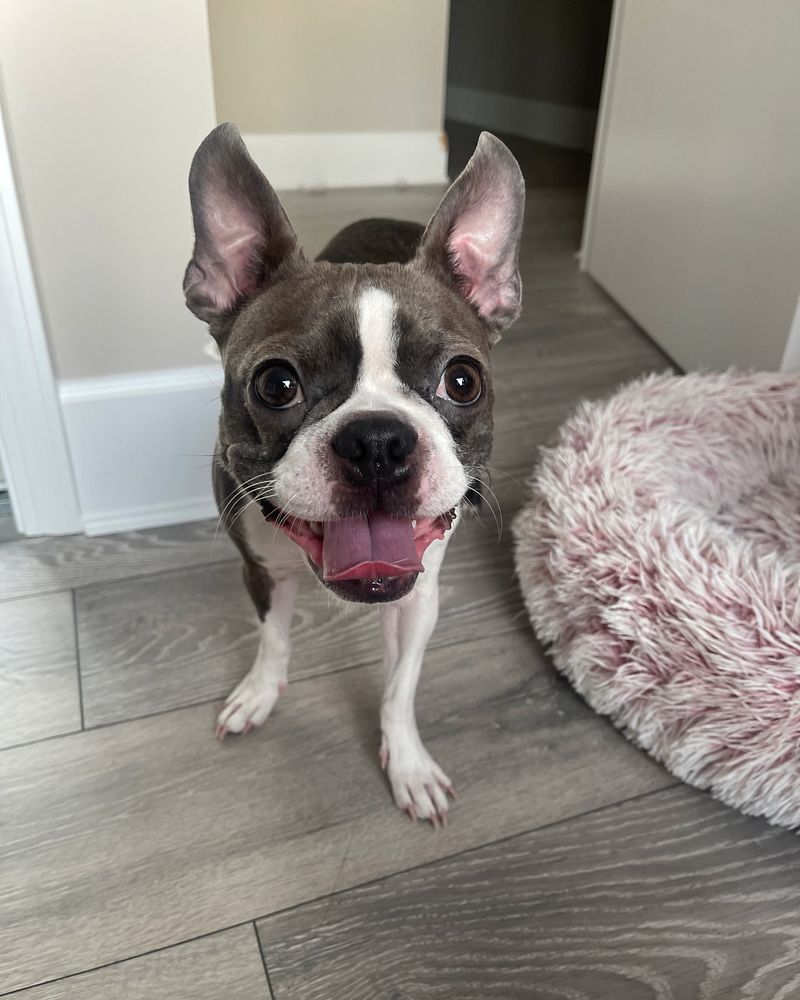Many dog breeds experience anxiety due to various breed-specific reasons, ranging from genetic predispositions to their environmental needs. Understanding these factors can help dog owners manage and alleviate anxiety in their pets, leading to happier and healthier lives. Learn about 26 dog breeds that are prone to anxiety and discover the unique reasons behind their stress.
Chihuahua
Chihuahuas are small and sensitive, often prone to anxiety due to their size. Being so tiny, they feel vulnerable, which can make them easily startled by loud noises or sudden movements. They thrive in calm environments. Regular gentle handling and positive reinforcement can help soothe their nerves. This breed forms a strong bond with their owner, often feeling anxious when left alone. It’s crucial to provide them with comfort and reassurance. Socialization and mental stimulation can also ease their anxiety, making them more confident and relaxed in various situations.
Border Collie
Border Collies are energetic and intelligent, bred to work. Their high energy levels require constant physical and mental stimulation, making them prone to anxiety if not adequately exercised. Lack of activity can cause boredom and stress, leading to behavioral issues. Owners should provide interactive play sessions and agility training. Consistent tasks and routines keep their mind engaged and anxiety at bay. A well-exercised Border Collie is a happy and contented dog, thriving in an environment that meets their active nature.
Jack Russell Terrier
Jack Russell Terriers are feisty and independent, traits that can lead to anxiety if not properly directed. They need a lot of physical activity and mental stimulation to channel their energy. Without it, they may become restless and anxious. Regular walks, playtime, and training are essential. Socialization with other dogs can also help alleviate stress, making them more adaptable. Understanding their need for interaction and activity can create a balanced, anxiety-free life for these spirited dogs.
Golden Retriever
Golden Retrievers are friendly and sociable, but this disposition can lead to anxiety when left alone. They thrive on companionship and can become stressed if neglected. Regular interaction, playtime, and exercise are vital for their well-being. Mental stimulation, such as puzzle toys or training sessions, can help keep their anxiety levels low. Establishing a routine and providing a secure environment ensures that they remain happy and balanced. Their affectionate nature needs nurturing to prevent feelings of loneliness and anxiety.
Cocker Spaniel
Cocker Spaniels are affectionate and sensitive, often forming close bonds with their families. This attachment can lead to separation anxiety if left alone for extended periods. They require companionship and regular interaction. Consistent routines and gentle handling can provide reassurance. Socialization and mental activities are beneficial in keeping them calm. Understanding their emotional needs and providing a nurturing environment helps reduce anxiety. Creating a loving and supportive atmosphere ensures a happy and relaxed Cocker Spaniel.
Bichon Frise
Bichon Frises are cheerful and loving, traits that can also make them prone to anxiety. They thrive on human interaction and can become stressed when isolated. Regular play sessions and companionship help alleviate their anxiety. Gentle training and socialization are important for building confidence. Creating a stable routine and environment can minimize stress, allowing these affectionate dogs to flourish. Understanding their need for attention and companionship is key to maintaining their happiness and well-being.
Dachshund
Dachshunds are curious and brave, but their independent nature can lead to anxiety if not correctly managed. They require consistent training and socialization to build confidence. Their history as hunters makes them alert, and without mental stimulation, they may become restless. Providing interactive toys and regular walks can help channel their energy positively. Owners should ensure a stable environment and regular interaction to keep anxiety at bay, ensuring a balanced and contented life for these spirited dogs.
Pug
Pugs are sociable and loving, often seeking attention from their owners. Their desire for companionship can lead to anxiety when left alone for long periods. They require regular interaction and exercise to keep their spirits up. Gentle play and mental stimulation through games can help reduce stress. Establishing a consistent routine provides reassurance, allowing them to feel secure and content. Understanding their need for love and companionship ensures a happy and stress-free life for these charming dogs.
German Shepherd
German Shepherds are known for their intelligence and protective nature. However, their strong loyalty can lead to separation anxiety when away from their family. They require plenty of exercises and mental challenges to stay balanced. Without it, anxiety can manifest as destructive behavior. This breed benefits from structured routines and clear boundaries. Consistent training and socialization are essential in reducing anxiety levels. Understanding their need for purpose and engagement can help owners create a stress-free environment for these loyal companions.
Miniature Schnauzer
Miniature Schnauzers are intelligent and lively, traits that make them prone to anxiety if not engaged mentally and physically. They require structured routines and challenges to keep their mind active. Lack of stimulation can lead to restlessness and stress. Owners should provide plenty of exercises and interactive play. Socialization with other dogs and training sessions can also help reduce anxiety. Understanding their need for engagement ensures a balanced and happy Miniature Schnauzer.
Yorkshire Terrier
Yorkshire Terriers are small but brave, often feeling anxious due to their size. Their alert nature requires regular mental and physical stimulation to prevent stress. Socialization and training help build confidence, reducing feelings of anxiety. These terriers thrive on interaction and playtime, which helps them feel secure and content. Understanding their needs and providing a stable environment with plenty of attention helps maintain their happiness and well-being, ensuring a joyful life for these spirited dogs.
Pomeranian
Pomeranians are spirited and confident, but their small size can make them feel vulnerable. They require regular socialization and positive reinforcement to build confidence. Without it, they may become anxious or fearful. Their active nature needs plenty of exercise and mental stimulation to stay balanced. Owners should ensure a secure environment and consistent routines to reduce stress levels. Engaging them in play and providing companionship helps maintain their happiness and well-being.
Basset Hound
Basset Hounds are laid-back and affectionate, but their strong attachment to family can lead to separation anxiety. They thrive on companionship and regular interaction. Establishing a routine and providing mental stimulation can keep them calm. Understanding their emotional needs and providing a nurturing environment helps reduce anxiety. Regular exercise and play also contribute to their overall well-being, ensuring a happy and relaxed Basset Hound. Their affectionate nature needs nurturing to prevent feelings of loneliness and anxiety.
Australian Shepherd
Australian Shepherds are energetic and intelligent, bred to work and thrive on challenges. Their high energy levels require constant physical and mental stimulation, making them prone to anxiety if not engaged. Lack of activity can cause boredom and stress, leading to behavioral issues. Owners should provide interactive play sessions and agility training. Consistent tasks and routines keep their mind engaged and anxiety at bay. A well-exercised Australian Shepherd is a happy and contented dog.
Maltese
Maltese are gentle and affectionate, often forming close bonds with their families. This attachment can lead to separation anxiety if left alone for extended periods. They require companionship and regular interaction. Consistent routines and gentle handling can provide reassurance. Socialization and mental activities are beneficial in keeping them calm. Understanding their emotional needs and providing a nurturing environment helps reduce anxiety, ensuring a happy and relaxed Maltese.
French Bulldog
French Bulldogs are affectionate and sociable, often craving attention from their owners. Their desire for companionship can lead to anxiety when left alone for long periods. They require regular interaction and exercise to keep their spirits up. Gentle play and mental stimulation through games can help reduce stress. Establishing a consistent routine provides reassurance, allowing them to feel secure and content. Understanding their need for love and companionship ensures a happy and stress-free life.
Shih Tzu
Shih Tzus are affectionate and gentle, often forming close bonds with their families. This attachment can lead to separation anxiety if left alone for extended periods. They require companionship and regular interaction. Consistent routines and gentle handling can provide reassurance. Socialization and mental activities are beneficial in keeping them calm. Understanding their emotional needs and providing a nurturing environment helps reduce anxiety, ensuring a happy and relaxed Shih Tzu.
Italian Greyhound
Italian Greyhounds are elegant and sensitive, often prone to anxiety due to their delicate nature. They thrive on companionship and can become stressed if neglected. Regular interaction, playtime, and exercise are vital for their well-being. Mental stimulation, such as puzzle toys or training sessions, can help keep their anxiety levels low. Establishing a routine and providing a secure environment ensures that they remain happy and balanced. Understanding their sensitive nature is key to preventing anxiety.
Beagle
Beagles are curious and friendly, traits that can lead to anxiety if not properly managed. They require regular exercise and mental stimulation to keep their minds active. Without it, they may become bored and restless. Socialization with other dogs and engaging activities can help reduce stress. Consistent training and routines provide reassurance, allowing them to feel secure and content. Understanding their needs and providing a nurturing environment helps maintain their happiness and well-being.
Cavalier King Charles Spaniel
Cavalier King Charles Spaniels are affectionate and sociable, often forming close bonds with their families. This attachment can lead to separation anxiety if left alone for extended periods. They require companionship and regular interaction. Consistent routines and gentle handling can provide reassurance. Socialization and mental activities are beneficial in keeping them calm. Understanding their emotional needs and providing a nurturing environment helps reduce anxiety, ensuring a happy and relaxed Cavalier.
Greyhound
Greyhounds are gentle and reserved, often prone to anxiety due to their sensitive nature. They thrive on companionship and can become stressed if neglected. Regular interaction, playtime, and exercise are vital for their well-being. Mental stimulation, such as puzzle toys or training sessions, can help keep their anxiety levels low. Establishing a routine and providing a secure environment ensures that they remain happy and balanced. Understanding their sensitive nature is key to preventing anxiety.
Labrador Retriever
Labrador Retrievers are friendly and active, but this disposition can lead to anxiety when left alone. They thrive on companionship and can become stressed if neglected. Regular interaction, playtime, and exercise are vital for their well-being. Mental stimulation, such as puzzle toys or training sessions, can help keep their anxiety levels low. Establishing a routine and providing a secure environment ensures that they remain happy and balanced. Their affectionate nature needs nurturing to prevent feelings of loneliness and anxiety.
Papillon
Papillons are lively and intelligent, traits that make them prone to anxiety if not engaged mentally and physically. They require structured routines and challenges to keep their mind active. Lack of stimulation can lead to restlessness and stress. Owners should provide plenty of exercises and interactive play. Socialization with other dogs and training sessions can also help reduce anxiety. Understanding their need for engagement ensures a balanced and happy Papillon.
Whippet
Whippets are gentle and reserved, often prone to anxiety due to their sensitive nature. They thrive on companionship and can become stressed if neglected. Regular interaction, playtime, and exercise are vital for their well-being. Mental stimulation, such as puzzle toys or training sessions, can help keep their anxiety levels low. Establishing a routine and providing a secure environment ensures that they remain happy and balanced. Understanding their sensitive nature is key to preventing anxiety.
Poodle
Poodles are intelligent and energetic, traits that make them prone to anxiety if not engaged mentally and physically. They require structured routines and challenges to keep their mind active. Lack of stimulation can lead to restlessness and stress. Owners should provide plenty of exercises and interactive play. Socialization with other dogs and training sessions can also help reduce anxiety. Understanding their need for engagement ensures a balanced and happy Poodle.
Boston Terrier
Boston Terriers are lively and affectionate, often craving attention from their owners. Their desire for companionship can lead to anxiety when left alone for long periods. They require regular interaction and exercise to keep their spirits up. Gentle play and mental stimulation through games can help reduce stress. Establishing a consistent routine provides reassurance, allowing them to feel secure and content. Understanding their need for love and companionship ensures a happy and stress-free life.
